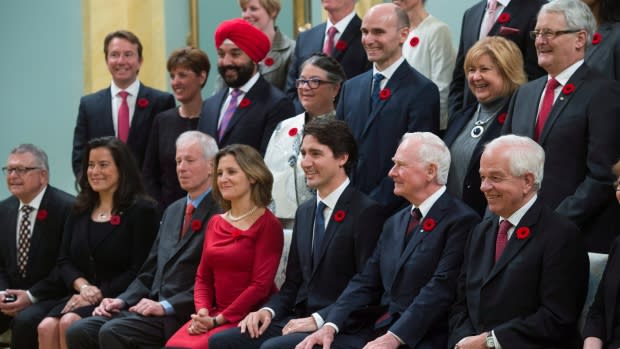Most people believe there are enough women in Canadian politics: Survey

Nearly 60 per cent of Canadians think there are “too many” or “the right number” of women in Canadian politics, even though, on average, they estimate that women occupy 31 per cent of the seats in the House of Commons. (They actually hold 26 per cent, which is a record.)
That’s just one of the findings of a new national survey about Canadians’ views and perceptions of women in politics. The survey was conducted by Abacus Data in partnership with Equal Voice, and released in time for International Women’s Day.
According to the results, 54 per cent of respondents said the right number of women were elected to Parliament, while four per cent said there are “too many” women. Women aged 18-36 were most likely to say more women needed to be in politics, at 59 per cent.
And though Prime Minister Justin Trudeau’s “Because it’s 2015” move to make his cabinet half female received plenty of attention, some Canadians think Parliament as a whole is closer to that gender parity than it really is. Survey results indicate 60 per cent of respondents overestimated female representation in the House of Commons, including 11 per cent who thought the percentage of seats held by women was at 50 per cent or higher. Interestingly, the more female MPs a person believed there were, the more likely they were to say there were enough or “too many” women in politics.
Most disturbingly, only 40 per cent of respondents said they were likely to recommend a woman they know well run for public office, while 22 per cent would “definitely not recommend” a career in elected politics.
The survey also found women and men would focus on different issues if they ran for Parliament. Female respondents said their top three campaign priorities would be expanding affordable housing, the quality of the public healthcare system, and addressing climate change. Men said their top three campaign priorities would be reducing public debt and the budget deficit, cutting corporate taxes, and spending more on public infrastructure.
No clear consensus for why there aren’t more women in Parliament emerged among respondents, but 33 per cent of those surveyed felt the negativity of politics was keeping women away. Another 28 per cent blamed it on lack of recruitment by parties of women for winnable ridings. Women were more likely to pin the blame on insufficient efforts from political parties, while men were inclined to say women had family obligations.
In the 2015 election, about a third of the candidates who ran with the five major parties were women. However, many of those candidates were with the Bloc Quebecois or the Green Party, and had statistically low chances of winning their ridings.
While a majority of Canadians believe the country will reach gender parity in Parliament, only 20 per cent of Canadians feel an equal male/female split in the House will be achieved by the 2023 election. Even so, that’s more optimistic than the predictions by Equal Voice, a national multi-partisan organization that works to increase the number of women elected to all levels of Canadian political office. It predicted that it will take 91 years to hit gender parity in the house, if current trends hold.


